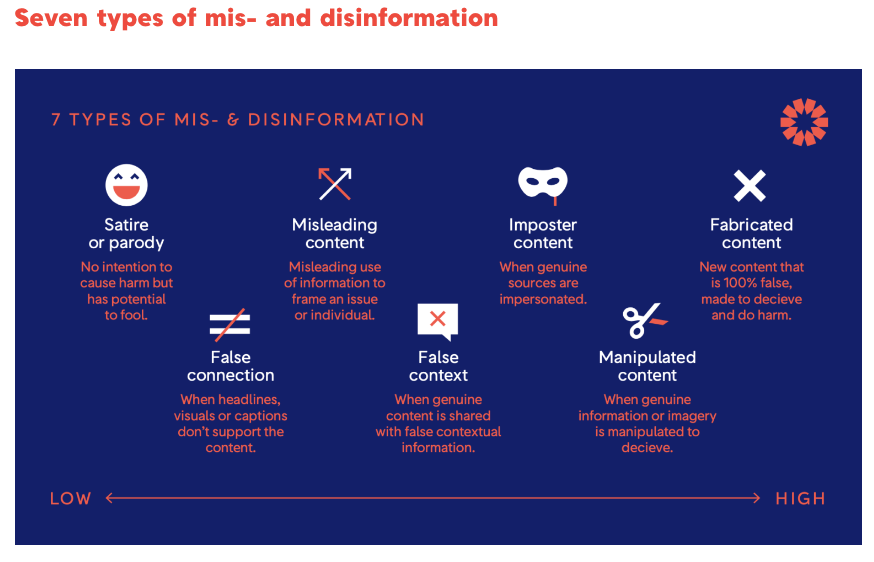Photo by Tim Mossholder on Unsplash
While most people get a joke, some have recently been sharing or commenting on satirical content as if it were factual or credible
Satire and parody have been identified as one of the seven types of mis- and disinformation by First Draft, an international network that provides “practical and ethical guidance in how to find, verify, and publish content sourced from the social web”.

First Draft states that “while it might seem uncomfortable to include satire as a category, there are many ways that satire has become part of the conversation around the way information can be twisted and reframed and the potential impact on audiences”.
What is satire?
The online Oxford dictionary defines satire as:
“the use of humour, irony, exaggeration, or ridicule to expose and criticize people’s stupidity or vices, particularly in the context of contemporary politics and other topical issues.”
What is parody?
The online Oxford dictionary defines parody as:
“an imitation of the style of a particular writer, artist, or genre with deliberate exaggeration for comic effect.”
According to First Draft, satirical and parody content have become a challenge on social media platforms because they are being “used strategically to bypass fact checkers and to spread rumours and conspiracies, knowing that any pushback can be dismissed by stating that it was never meant to be taken seriously”.
As a rule, fact checkers do not fact check satirical or parody content encountered online, but it has often been the case of late for fact checkers to point out satire or parody when social media users have been sharing or commenting on such content as if it were factual or credible.
Namibia Fact Check has found itself in this position a few times in 2022, such as having to point out that posts claiming that an American court had ruled that siblings could marry each other or that the head of the World Health Organization (WHO) was arrested for crimes against humanity were both satirical posts.
This is because, as this conference paper from 2018 suggests, many people are unable to discern between satirical content, fake news and credible content in online information spaces, such as social media platforms.
To illustrate, Africa Check also dealt with the issue of satirical content being confused for real content in this article from February 2019.
Given that many people struggle to identify satirical content online, social media platforms such as Meta / Facebook call on their users to be “responsible when publishing humour, satire or social commentary”. Twitter requires that parody accounts are clearly identified as such to “avoid confusing others”.
What to do if you suspect you’re looking at satirical / parody posts?
- If the post links to a website, go to the website and read the ‘About’ page;
- If the post doesn’t link to a website, but makes an outrageous claim, check if news sources have also reported the same claim;
- Google the information to see what comes up.

